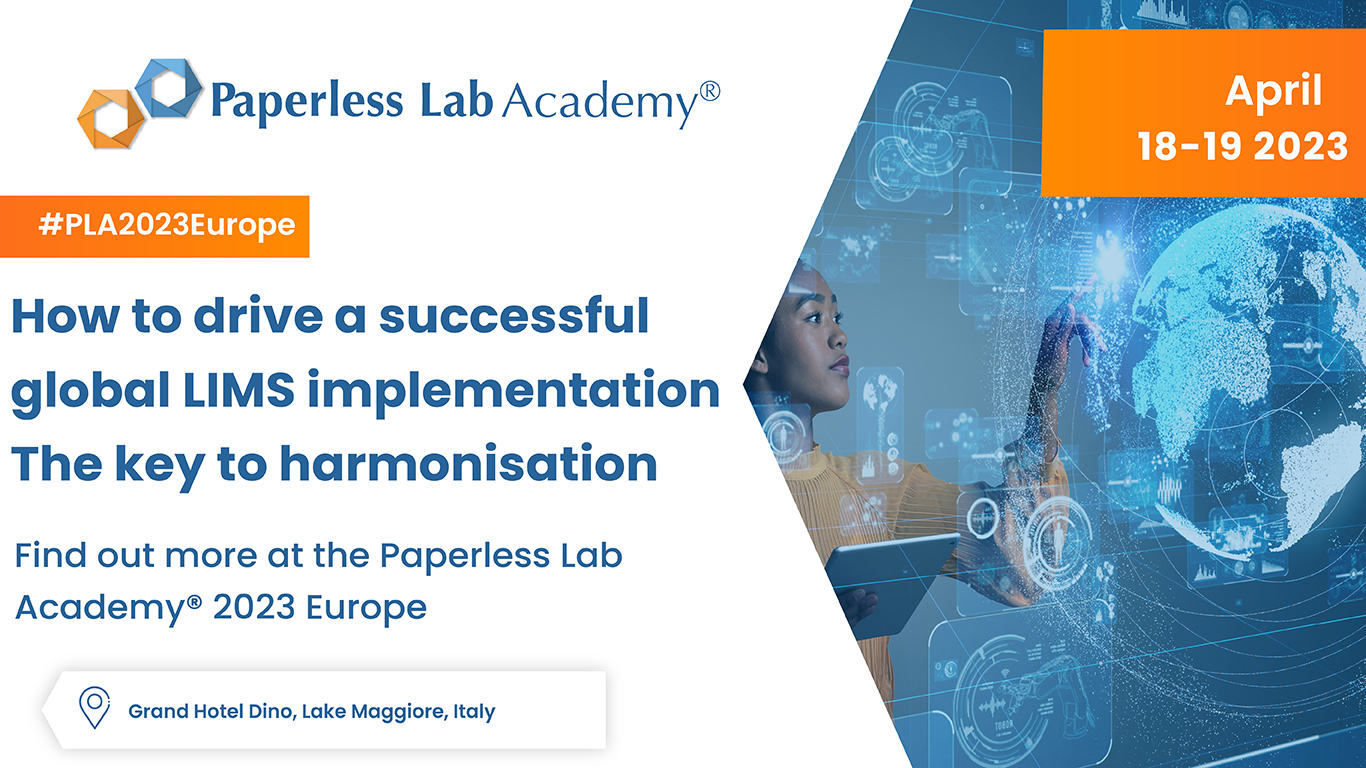At the Paperless Lab Academy® 2023 Europe, two real-life cases about global LIMS implementation will be presented by their respective project leaders.
Considering that a successful, simple LIMS implementation is already a challenge and rarely reaches its full potential, a global LIMS implementation is something of a rare pearl when carried out in all the laboratories concerned. To reach its full potential in a multi-site facility, systematic standardisation and harmonisation between all sites of the laboratory enterprise are required. As it involves bringing together multiple sites and systems into a single way of working with a clear master data plan, it is interesting to understand how this is technically managed and, more importantly, how the commitment of so many stakeholders is achieved.
Global LIMS implementation: use of cross-business synergies as a path to digitalisation
On the one hand, Sergio Nasi, Head of Global Laboratory Execution at Boehringer Ingelheim, will talk about the "leveraging cross-business synergies as a pathway to digitalisation".
Sergio is an electronic engineer by training and a techie manager by profession. He has been working in the field of laboratory informatics for more than two decades, in many different roles: Programmer, Business Analyst, Project Manager, Team Leader, Programme Manager and almost always Firefighter. Today, Sergio is responsible for the global LIMS roadmap at Boehringer-Ingelheim.
The case of the MyLIMS program currently underway, is presented as a pragmatic approach to address the digitisation of two seemingly disparate business areas such as animal health and biopharma with a holistic, template-driven solution that brings significant benefits in terms of simplifying the application landscape and provides the foundation for ongoing and future integration with ERP, MES, LES, CDS and paperless, mobile-based sample processing.
Standardisation of Laboratory processes for a global LIMS implementation
On the other side, Alessio Tremolada, Laboratory Global Process Owner at SGS, will talk about the "global program for digital laboratories at SGS".
Alessio is an industrial chemist whose professional experience started in laboratories where he enjoyed executing and innovating analytical chemistry processes. He spent more than 20 years at SGS, where he progressed from laboratory technician to manager for the environmental laboratory business in Italy and global technical manager for the same area, also taking responsibility for the business IT.
When SGS launched one of the most important IT programs for the company called "Digital Laboratory", Alessio had the role of Global Process Owner for the approximately 1,000 laboratories operating in many different areas. In this role, he leads the team responsible for standardising the lab's digital processes to achieve the best possible efficiency. He oversees the development of the IT products to ensure they meet user requirements and works with IT delivery and implementation managers to achieve business goals.
SGS provides services to customers from more than 1,000 laboratories around the world. It is a complex and geographically dispersed network that presents us with some operational challenges. We realised that without a standardised and integrated laboratory information management system, we had no consistent way to manage workflow, administration, finance, and operations across our laboratories. This made it difficult for us to utilise the complex data we have and affected our ability to introduce new technologies, increase productivity and improve efficiency. Aligning, optimising, and digitising our lab processes through our new Digital Labs Transformation programme enables us to increase efficiency, improve quality and optimise our testing methods. This in turn enables us to introduce new data analytics solutions, mobility and analytics, and fully automated labs with AI-powered insights and modelling and excellent scalability.
At the Paperless Lab Academy® 2023 Europe conference, more real cases of successful digital transformation projects in labs will be presented, together with various discussions on how to get the most out of the data generated.
Still on time to register!



